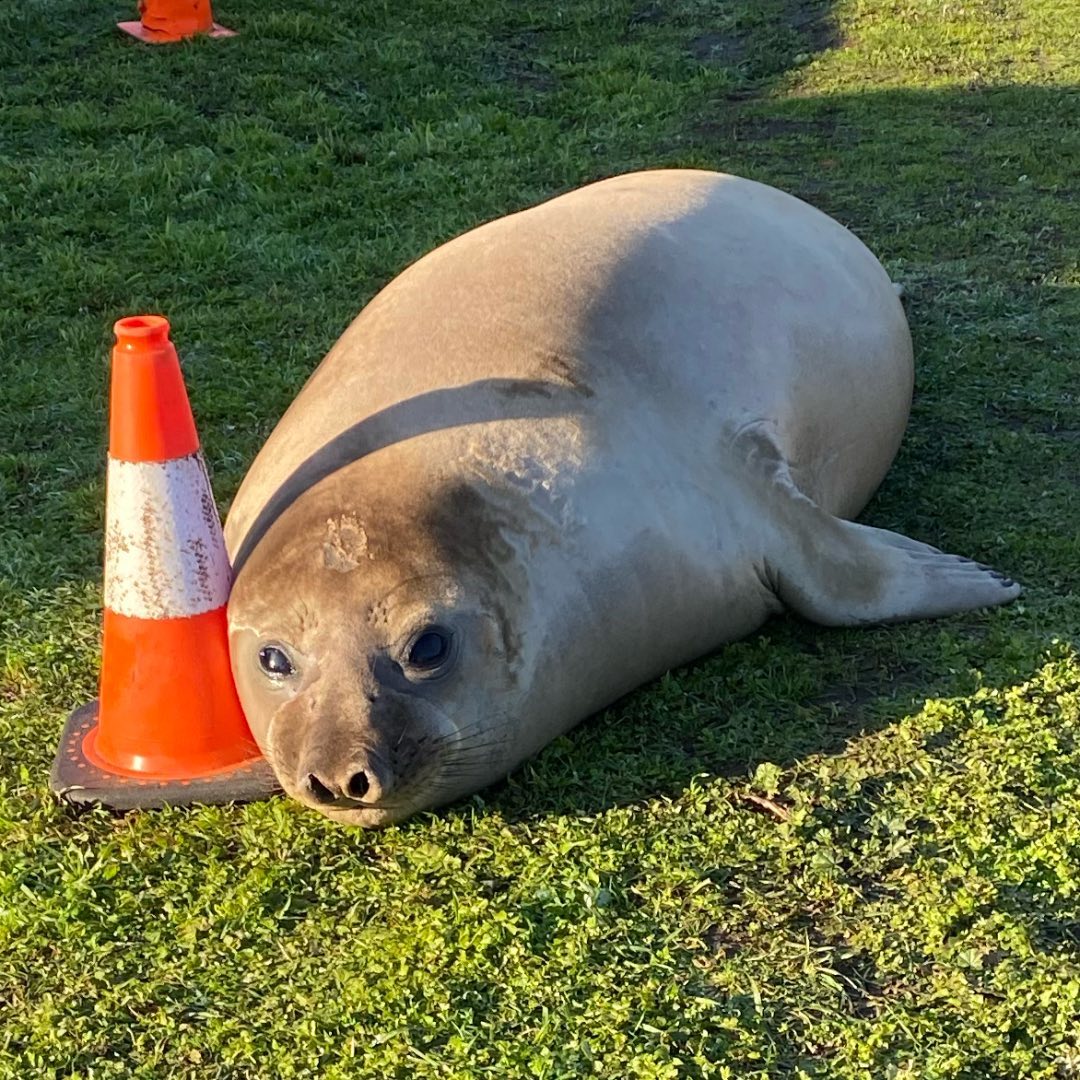
A 1,300-pound seal named Neil has taken over a small town along the coast of Tasmania, going viral for banging parking poles and stopping a woman from going to work after blocking access to her car while napping.
While his amusing antics have garnered a following on social media, local conservation authorities have been concerned about the human interest in him and have warned locals to be careful in their interactions with Neil.
Here’s what you need to know about Neil the seal.
Who is Neil the seal?
Neil is a 600 kg (1,322 pounds) Southern elephant seal in Tasmania, an island state in Australia, according to news reports.
Born in Salem Bay in 2020, Neil was tagged by the Marine Conservation Program. He has been sighted at a number of locations in southern Tasmania, according to Tasmania’s Department of Natural Resources and Environment.
Elephant seals are a threatened species in Australia, and full-grown males average between 1,500 and 3,700 kg (3,000 to 8,000 pounds).
The Marine Conservation Program in Tasmania said on its Facebook page that he has been “hauled out,” a normal behavior for seals where they come ashore to rest for four to five weeks after foraging and return to the sea when ready.
TIME has reached out to the agency for confirmation on Neil’s size and further information.
Why is Neil the seal trending?
Neil’s hilarious romps have earned him his own Instagram and TikTok accounts. At the time of going to press, #neiltheseal had amassed over 47.1 million views on TikTok.
Locals have shared videos of him playing with cones, flopping across roads and lying on lawns.
As Neil has been growing, he’s also been gaining more attention from local and now international news. In November, he stepped up his disruptions by taking a nap in front of a local resident’s car, keeping her from going to work that day, according to pictures and an interview with news.com.au.
What concerns do environmental conservationists have?
The Department of Natural Resources and Environment has warned that elephant seals should not be disturbed on land and “the speed with which they can move their bulk makes them potentially dangerous if harassed.”
The Marine Conservation Program has repeatedly told people and pets to stay at least 20m (65 feet) away from Neil, requiring interventions to relocate and try to keep the seal’s location private for the safety of all.
In March 2022, the agency said Neil, a frequent along the coast, was spotted near the town of Woodbridge in southern Tasmania, this time having gained significant weight since he was sighted the year before.
The agency told people to stay away, and in July, posted another warning that if the public didn’t follow instructions, they would have to relocate Neil, who’d been hauling out at a nearby beach since June.
De Lacy posted in July 2022 that they were aware of three incidents of the seal being poked or prodded and urged the public to report any potential acts of animal cruelty.
This year, the interest in Neil and the conservation concerns continued. The Marine Conservation Program posted in April that Neil was spotted near another beach and warned yet again that “seals are large wild animals and for the safety of the seal and the public should not be disturbed.”
Two days later, the agency said it had moved Neil to another location because of the continued dangers to both Neil, who was near a road, crowds of people and dogs, and to humans and pets if they got too close, saying it was “not cool” that people were harassing and touching the seal.
Despite conservationists trying to keep Neil’s location a secret, he’s been spotted elsewhere in Tasmania and on social media. This week, 7NEWS Australia reported that Neil had been spotted in Dunalley, a town of 300 people.
Anyone in the area with concerns about the seal can contact the Marine Conservation Program.
More Must-Reads from TIME
- Cybersecurity Experts Are Sounding the Alarm on DOGE
- Meet the 2025 Women of the Year
- The Harsh Truth About Disability Inclusion
- Why Do More Young Adults Have Cancer?
- Colman Domingo Leads With Radical Love
- How to Get Better at Doing Things Alone
- Michelle Zauner Stares Down the Darkness
Contact us at letters@time.com